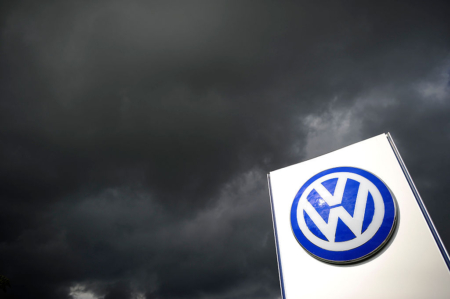
Volkswagen, Germany's largest carmaker and industrial employer, has long enjoyed strong sales. However, the recent drop in demand and external pressures have forced the historic business to consider cutting jobs and closing some plants in order to restore profitability. This phenomenon reflects that German industry is facing a serious economic crisis.
First, the profitability of Volkswagen's core brand is constrained by a number of factors. High labor costs and a complex organizational structure, as well as an inability to keep up with the rapid progress of Chinese automakers, are major reasons. These problems are similar to those facing the broader German economy. The German government has forecast the economy will shrink by 0.2 per cent in 2024, down from a previous forecast of 0.3 per cent growth. The industrial sector was weak, failing to recover from the shock of COVID-19 and the Russia-Ukraine conflict in 2022. At the same time, Germany's influence appears to be waning within the European Union, which recently decided to raise tariffs on electric vehicles imported from China.
Second, economists point out that the problems at Volkswagen and in the German economy as a whole are rooted in the missed investment opportunities of the "golden decade." After the global recession of 2008, Germany's output grew by 14%. At this time, Volkswagen exported internal combustion engine cars to Europe and China and became the world's largest automaker by sales in 2016. Despite a 31 billion euro loss due to the emissions testing scandal, Volkswagen retains this position until 2019. Between 2014 and 2019, the German government ran budget surpluses, and an environment of low interest rates could have promoted investment in public infrastructure, digitization, and the green economy.
However, the German government has passed a constitutional amendment that enshrining a balanced budget, limiting the scope for investment. Jens Sudkum, an economist at Heinrich Heine University in Dusseldorf, said: "In a sense, Germany was too successful and people became complacent that this success would last, but now we know that is not the case." The same is true of Volkswagen. Vw has sold millions of gas-powered cars in China since the 1990s, but failed to take seriously the challenge from Chinese brands such as BYD, Geely and Nio. This lack of foresight has upset the German metalworkers' union, which represents 120,000 Volkswagen workers. The union has brought allegations of mismanagement against VW's leadership. Just last month, thousands of workers rallied ahead of their first wage talks with company leaders, with workers pledging to save 120,000 jobs at six German plants and demanding a 7 percent pay rise. The company stresses the need to reduce labor costs in Germany.
In addition, German politicians are considering whether they should step in to help Volkswagen, especially in the context of a slowing economy. In recent years, the automotive industry has provided employment for 773,000 people, including many positions in small companies and suppliers. One of the biggest suppliers, ZF, recently announced it would cut 14,000 jobs over the next four years, partly due to falling demand for electric vehicles. Last year, the German government abruptly ended subsidies for electric car sales, frustrating consumer demand and casting doubt on Europe's planned goal of banning sales of new internal combustion engine cars by 2035. Recently, some German politicians have called for the ban to be lifted or extended, while economists have warned that it could further confuse consumers. At the same time, the European Union is also preparing to raise tariffs on Chinese electric car imports to level the playing field for European automakers.
To sum up, the global economic environment is changing, and so are Germany's economic growth drivers. The problems facing Volkswagen should serve as a wake-up call for German policymakers to start making serious investments and reforms to restore German competitiveness.

報告顯示,中國電力投資加速增長,預計2024年電網基建投資將超過5300億元。
近日,市場迎來了一則引人注目的消息:工業巨頭3M公司(MMM.N)在本周五公布了其季度業績報告,隨後股價飆升至近兩年來的
最近,外媒給OpenAI算了筆賬,今年可能要血虧50億美元。
近日,巴黎奧運會和世界鐵人三項協會聯合發布了一項重大決定,宣布因塞納河水質污染問題,原定於近期進行的奧運會鐵人三項首次下
當地時間7月18日,法國巴黎發生了一起令人震驚的持刀襲警事件。
近期,一則重大消息在國際舞臺上引起軒然大波,馬來西亞宣布加入金磚國家。
調查發現,互聯網和智能手機的使用幹擾了韓國近五分之一學生的生活。